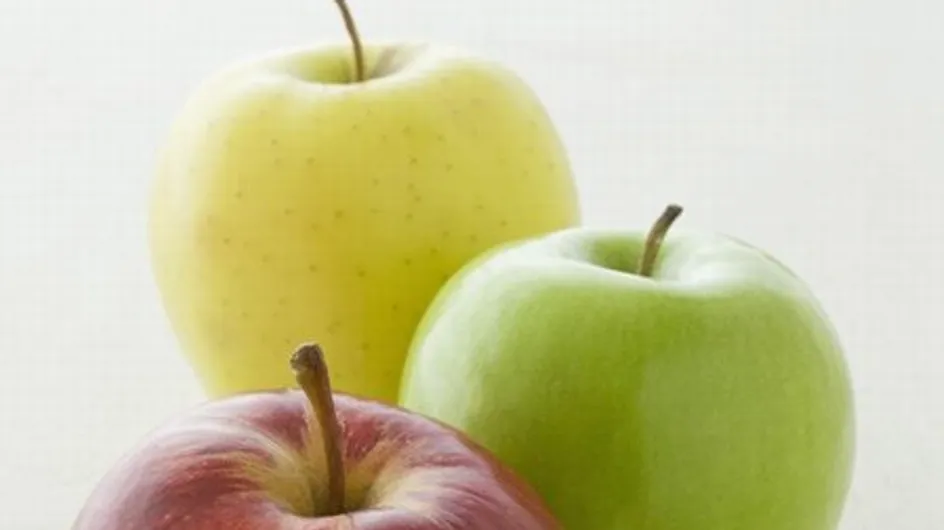Calories in fruit
Therefore, certain fruits should be consumed in moderation when you're watching your figure. Find out more about the calories in fruits...
Fresh fruits
How many calories are in fresh fruits? Fresh fruits mainly contain water (80 to 95%), fibre, sugar, vitamins and minerals. Their high water content means that they are low in energy.
The number of calories they contain depends on their carbohydrate content, which varies a lot from one fruit to another: 5% for berries, honeydew melons and watermelons; 5 to 10% for citrus fruits; 10 to 15% for fruits with seeds and stones; 15 to 20% for bananas, grapes and figs.
So there's no point stuffing yourself with cherries when you're on a diet: you could end up consuming a lot more calories than you realise! When you're watching your weight, you need to prioritise fruits with a low sugar content.
Banana 90 Kcal
Grape 72 Kcal
Cherry 68 Kcal
Kaki 66 Kcal
Passion fruit 62 Kcal
Grenade 62 Kcal
Mango 60 Kcal
Fig 57 Kcal
Blackberry 54 Kcal
Pineapple 54 Kcal
Plum 52 Kcal
Blackcurrant 50 Kcal
Blueberry 50 Kcal
Pear 50 Kcal
Melon 48 Kcal
Apricot 47 Kcal
Clementine 46 Kcal
Orange 45 Kcal
Grapefruit 42 Kcal
Peach 40 Kcal
Raspberry 38 Kcal
Strawberry 35 Kcal
Redcurrant 33 Kcal
Papaya 33 Kcal
Guava 33 Kcal
Watermelon 30 Kcal
Lemon 28 Kcal
Quince 29 Kcal
Dried fruits
Obtained through dehydration when the fruit is exposed to a source of heat for a long period of time, dried fruit contains the same elements as fresh fruit but 4 to 5% more concentrated. Rich in sugar (65 to 70g/100g), dried fruit is also higher in calories (280 Kcal on average).
Whilst dried fruits contain practically no Vitamin C, they are packed with minerals (potassium, iron) and fibre (3 to 4%). Eat dried fruits in moderation when you're watching your weight but don't hold back when you're doing sport.
Dried date 287 Kcal
Raisin 280 Kcal
Dried banana 273 Kcal
Dried apricot 266 Kcal
Dried fig 250 Kcal
Oleaginous fruits
Unlike other fruits, oleaginous fruits (mostly nuts) are low in sugar but rich in fat (40 to 60%) and protein (20%), which explains their higher calorie content (600 Kcal on average).
Nevertheless, eating small amounts can be beneficial for your health because they contain unsaturated fatty acids (Omega 3 in particular), Vitamin E, magnesium, iron and calcium. Eat them in moderation, and unsalted.
Pecan nut 700 Kcal
Cashew nut 600 Kcal
Walnut 525 Kcal
Hazelnut 385 Kcal
Coconut 353 Kcal
Source: Aprifel
Also in Food & Drink:
> Calories in cheese
> Calories in bread
> Calorie Calculator














